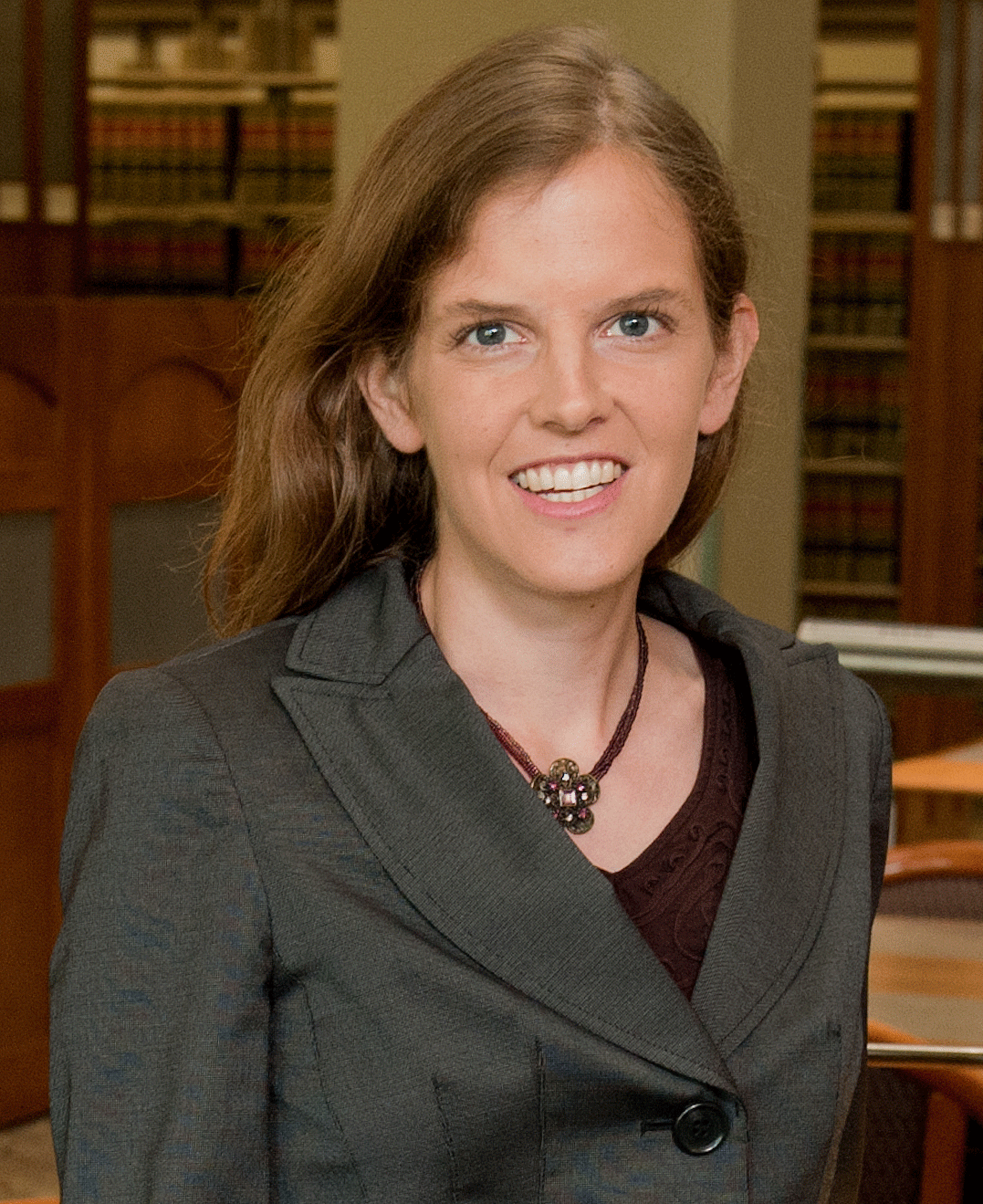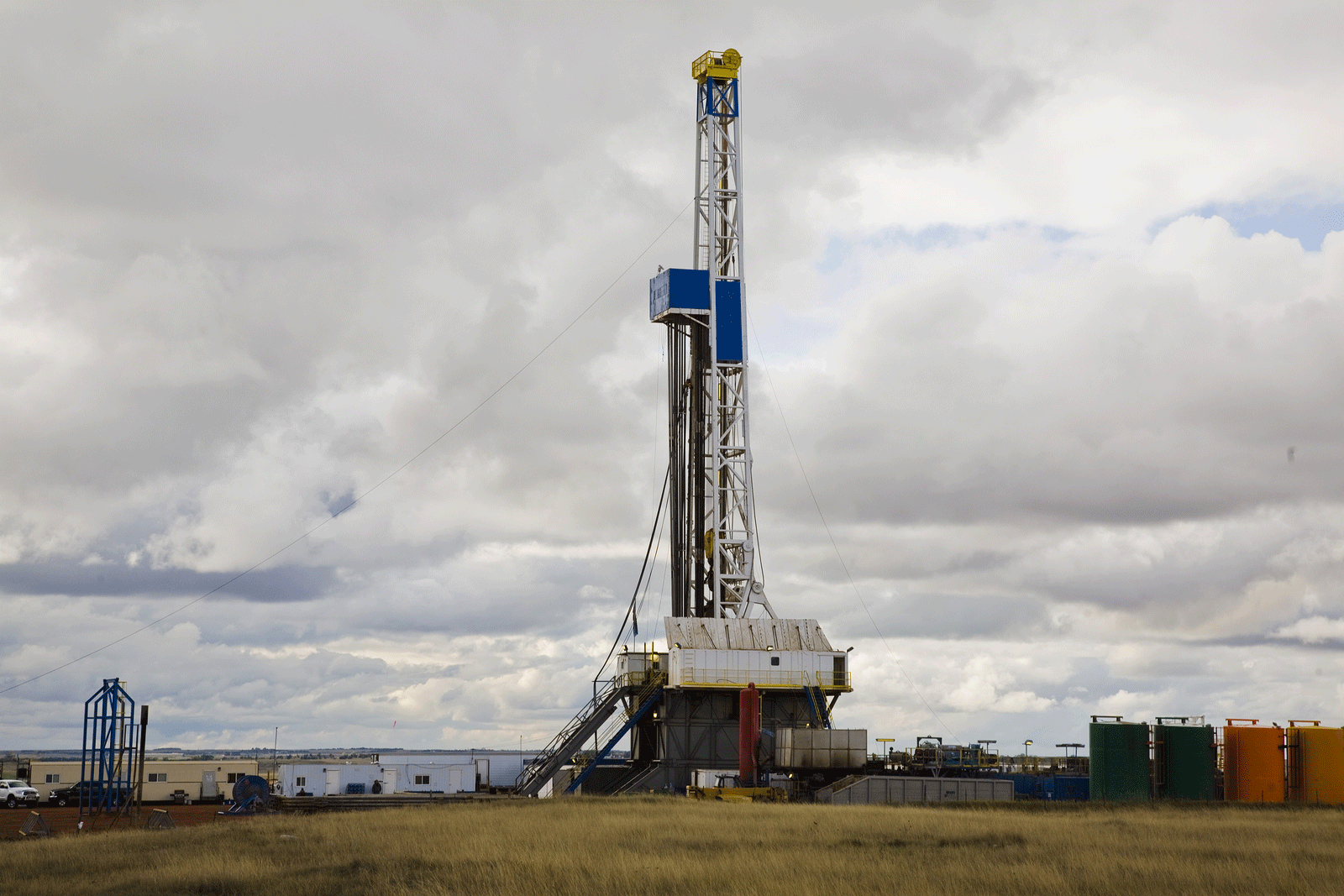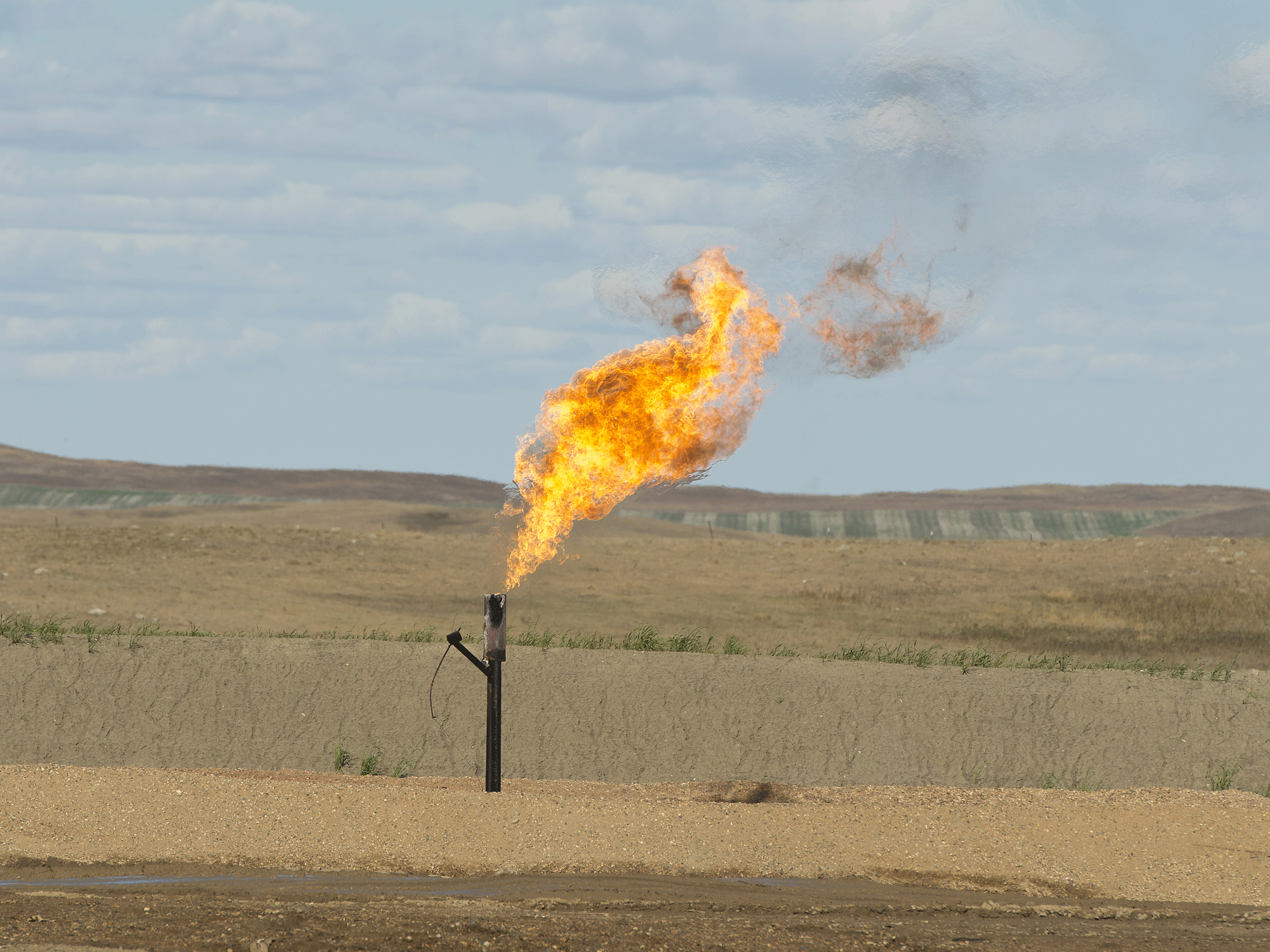Texas Family Wins Fracking Suit
Air Date: Week of May 9, 2014

Hannah Wiseman (photo: Florida State University School of Law)
A Texas family just won a $3 million dollar lawsuit against a natural gas company, arguing that the company’s fracking operation was a nuisance to their life. Host Steve Curwood asks Florida State law professor Hannah Wiseman if this could be a turning point in the legal battle against fracking's environmental effects.
Transcript
CURWOOD: Divestment isn't the only environmentally based threat to fossil fuel companies. While many tout the natural gas fracking boom as a huge benefit, some residents abutting those gas wells say they're suffering from polluted water, toxic chemicals and bad air. Many have sued. Suits have been dismissed, or settled but in late April the Parr family in North Texas won a rare victory. They sued several companies over numerous health problems they blame on the foul air from a nearby gas well. All the companies settled, except for Aruba Petroleum. When the case went to trial the Parr family won nearly $3 million dollars in damages. Hannah Wiseman teaches environmental and energy law at Florida State University and joins me now to discuss the issues. Welcome to Living on Earth.
WISEMAN: Thank you. Thank you for having me.
CURWOOD: Now so far we haven't seen too many legal victories and cases involving fracking. How was the Parr family in Texas able to convince a jury to award them $3 million dollars in damages?
WISEMAN: The Parr family alleged a nuisance, which is an unreasonable interference with the enjoyment of their property. And they persuaded the jury that various health problems were caused by oil and gas activities occurring near their property.
CURWOOD: What did they show in terms of the nuisance and their health problems?
WISEMAN: The Parr family showed dizziness, nausea, possibly immune effects, lymph nodes enlarged on the necks. They had reports from blood tests suggesting changes to their health that occurred after oil and gas activity began. Also damage to their livestock, and damage to livestock is another actionable claim with respect to a nuisance because that is another interference with their property.
CURWOOD: I imagine that's big in Texas too.
WISEMAN: That's correct.
CURWOOD: To what extent are nuisance claims being used by plaintiffs in other fracking cases around the country?
WISEMAN: Nuisance claims are very common. They're one of the most common types of claims because these are common law claims, meaning they were developed by courts, and they exist above the public law of statues. Even if a defendant complied with all statues and regula-tions, including environmental statues and regulations, plaintiffs may still allege a nuisance.
CURWOOD: Now, how unusual is it for a case like this to wind up at trial? One would think that the gas and oil companies would prefer to settle a case like this out of the public eye.
WISEMAN: This is very unusual. Most cases have indeed settled or been dismissed. This is one of the first, if not the first cases to go to trial on the issue of nuisance associated with oil and gas, and particularly hydraulic fracturing.

Midwest natural gas extraction (photo: bigstockphoto.com)
CURWOOD: What other jurisdictions recognize this nuisance concept?
WISEMAN: All jurisdictions within the United States recognize some form of nuisance. This claim was originally developed in the English courts. There were very early cases finding that agricultural activities were a nuisance. The nuisance claim was then transferred to the United States, and has since been recognized in US courts. In some cases, legislatures have further de-fined or narrowed what a nuisance claim can be, but this claim is alive and well throughout the United States.
CURWOOD: I wonder how applicable this is to somebody living downwind from a hog farm, for example?
WISEMAN: That was indeed the original nuisance case. Aldred's case in England was about a hog farm, and the neighbor of the hog farm successfully argued that the odors from the farm were so strong as to make the neighbor's property uninhabitable.
CURWOOD: How surprised were you that this fracking, hydraulic fracturing nuisance case, happened in Texas?
WISEMAN: It is somewhat of a surprise because Texas is often viewed as a state that has had such a high level of oil and gas production for such a long time that the activity is accepted by the citizens of the state. There's this view that people in Texas don't tend to complain because they're happy with the profits that oil and gas drilling have brought into the state. But I think es-pecially with the expansion of drilling due to the hydraulic fracturing of shales, I think there's a concern that wells are increasingly close to people's houses. There are more than 1,700 gas wells in the city of Fort Worth alone, for example, and with the proximity of wells to farms and hous-es, there may be growing concerns about the environmental effects.
CURWOOD: How vulnerable do you think this Texas case is to appeal?
WISEMAN: I think the case is somewhat vulnerable on appeal, and I think there could be a number of challenges with respect to whether the activity was, in fact, unreasonable, as well as whether the plaintiff's health problems were caused by the defendant. I think there could an ar-gument that there were other sources of pollution that also contributed to the alleged injuries. In terms of setting precedent, as well as setting an example that other states will follow, I would imagine that this case will not establish strong precedent until it is assessed by an appellate court.
CURWOOD: So, it'll take a while, I imagine, it'll make its way to the Supreme Court?

A natural gas flare (photo: bigstockphoto.com)
WISEMAN: My best guess is that it would end up in the Texas Supreme Court because this could be a monumental case both for plaintiffs and for the oil and gas industry, and I think strong arguments will be made by both sides on appeal.
CURWOOD: Hannah Wiseman teaches environmental and energy law at Florida State Universi-ty. Thanks so much for taking the time today, Professor.
WISEMAN: Thank you.
Links
Living on Earth wants to hear from you!
Living on Earth
62 Calef Highway, Suite 212
Lee, NH 03861
Telephone: 617-287-4121
E-mail: comments@loe.org
Newsletter [Click here]
Donate to Living on Earth!
Living on Earth is an independent media program and relies entirely on contributions from listeners and institutions supporting public service. Please donate now to preserve an independent environmental voice.
NewsletterLiving on Earth offers a weekly delivery of the show's rundown to your mailbox. Sign up for our newsletter today!
 Sailors For The Sea: Be the change you want to sea.
Sailors For The Sea: Be the change you want to sea.
 The Grantham Foundation for the Protection of the Environment: Committed to protecting and improving the health of the global environment.
The Grantham Foundation for the Protection of the Environment: Committed to protecting and improving the health of the global environment.
 Contribute to Living on Earth and receive, as our gift to you, an archival print of one of Mark Seth Lender's extraordinary wildlife photographs. Follow the link to see Mark's current collection of photographs.
Contribute to Living on Earth and receive, as our gift to you, an archival print of one of Mark Seth Lender's extraordinary wildlife photographs. Follow the link to see Mark's current collection of photographs.
 Buy a signed copy of Mark Seth Lender's book Smeagull the Seagull & support Living on Earth
Buy a signed copy of Mark Seth Lender's book Smeagull the Seagull & support Living on Earth

